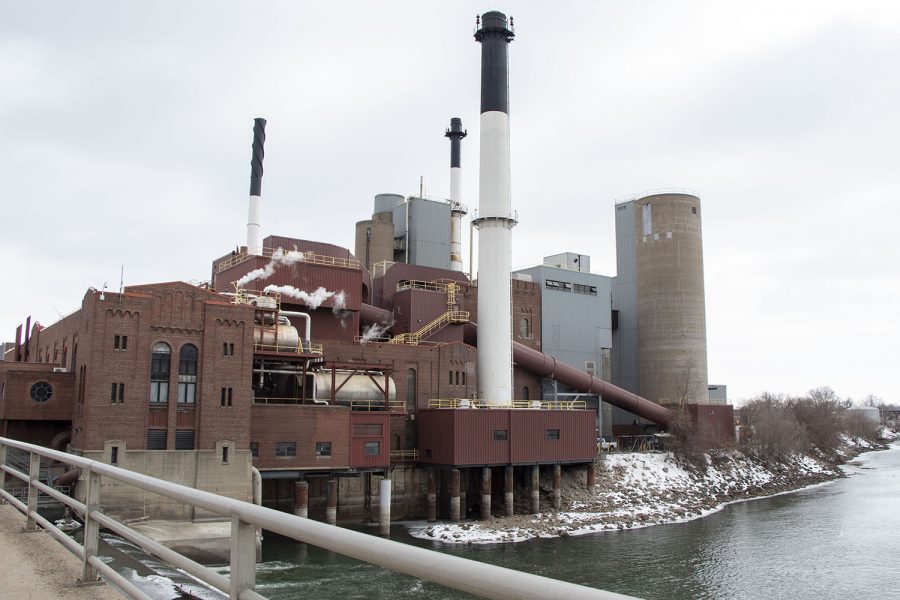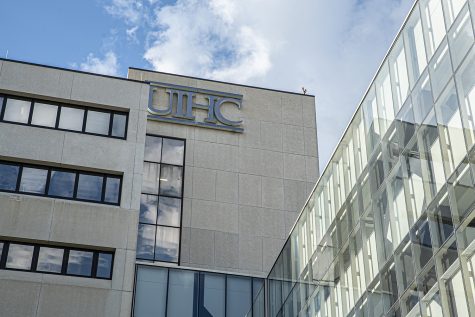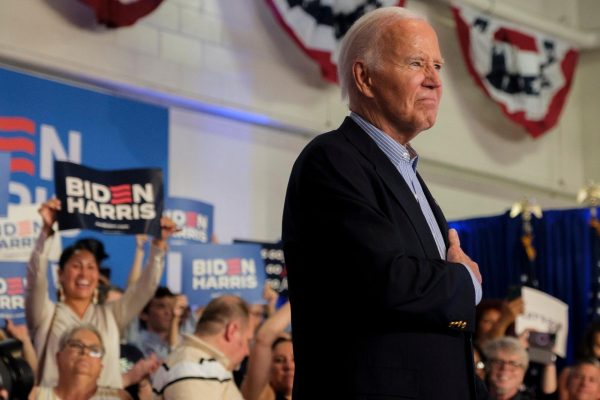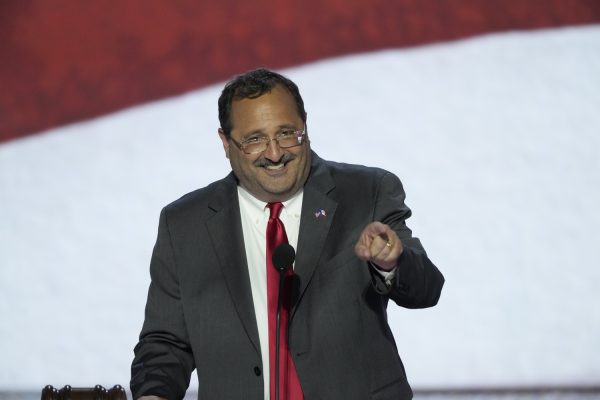Iowa’s energy, electrical infrastructure remain resilient despite freezing temps
While all energy systems are vulnerable to the impacts of extreme weather, Iowa’s interconnected, diverse energy infrastructure and electrical grid has made it less prone to failures.
The Iowa City Power Plant is seen on Wednesday, Feb. 24, 2021. Because the University of Iowa does not rely on one resource for energy, it uses the power plant as a supplementary energy source to help prevent large energy and electric outages.
February 25, 2021
While temperatures continually plunged below zero this winter, experts said that Iowa’s energy infrastructure is set up to withstand the pressures of extreme weather.
But considering the recent crisis in Texas and changing weather patterns as a result of climate change, concerns have risen around the resiliency of the U.S.’s energy infrastructure and its ability to perform during extreme weather events in the future.
Iowa State University Professor James McCalley, who works in the College of Engineering, said while all regions experience extreme weather events, there is significant variance in how infrastructure systems are operated throughout the country.
These systemic differences could produce different outcomes during such events, he said.
“Texas was so highly dependent, simultaneously, on natural gas for electricity and heating,” McCalley said. “For Iowa, I don’t see that we would have the same problems with natural gas, simply because our electric side is not as dependent on natural gas.”
In an email to The Daily Iowan, Media Relations Manager of MidAmerican Energy Company Geoff Greenwood, one of Iowa’s major utility providers, wrote that the company’s natural gas and electrical systems are also interconnected within broader systems.
“We are connected to interstate networks of natural gas pipelines,” Greenwood wrote. “We are also connected to the broader electric grid. So, through the grid, we can sell electricity we generate to others, and we can purchase electricity that others generate.”
RELATED: University of Iowa students’ homes impacted by the Texas snowstorm
In contrast, Texas’ energy system operates independently from the rest of the nation, which McCalley said helped drive the crisis that occurred there.
“The whole eastern side of the United States is interconnected,” McCalley said. “If a certain region or state has trouble, they can reach out and buy energy from another location. And it should be said that this is one of the weaknesses with respect to Texas. They are not interconnected with any other region.”
The combination of energy diversification methods and an interconnected grid have allowed Iowa’s energy infrastructure to continue performing efficiently over the years.
University of Iowa Director of Utility Operations Ben Fish said energy diversification method has also been applied at the university level and has helped prevent systems from experiencing widespread failure thus far.
“We buy our electricity from MidAmerican, but the University of Iowa campus also runs on steam that is generated at the University of Iowa power plants,” Fish said. “We’ve always had a philosophy that we wanted to have multiple fuel sources. That has led to the university continuing to keep systems online that can burn solid fuel rather than switching to all natural gas, and it has paid off big time over the last couple of weeks.”
Fish said the energy infrastructure in Iowa seems to be strong, and he is confident in its ability to withstand a variety of extreme weather events.
“I’ve been in the energy industry for 17 years. Iowa appears to me to have very good infrastructure that is set up to be able to handle extreme weather in both directions,” Fish said. “[The university] is glad to be working with our utility partners in the state of Iowa because they have given us great service over the years.”





















